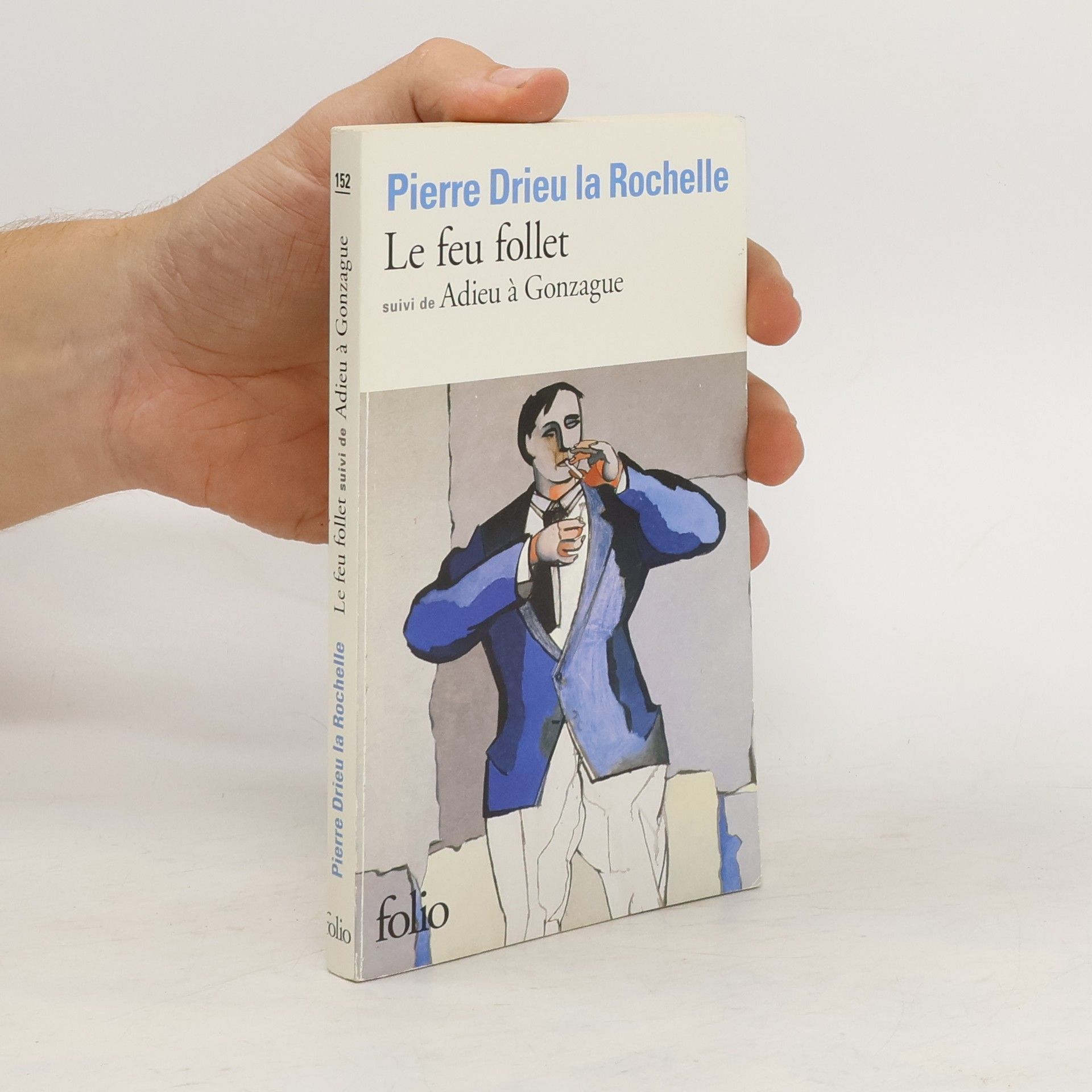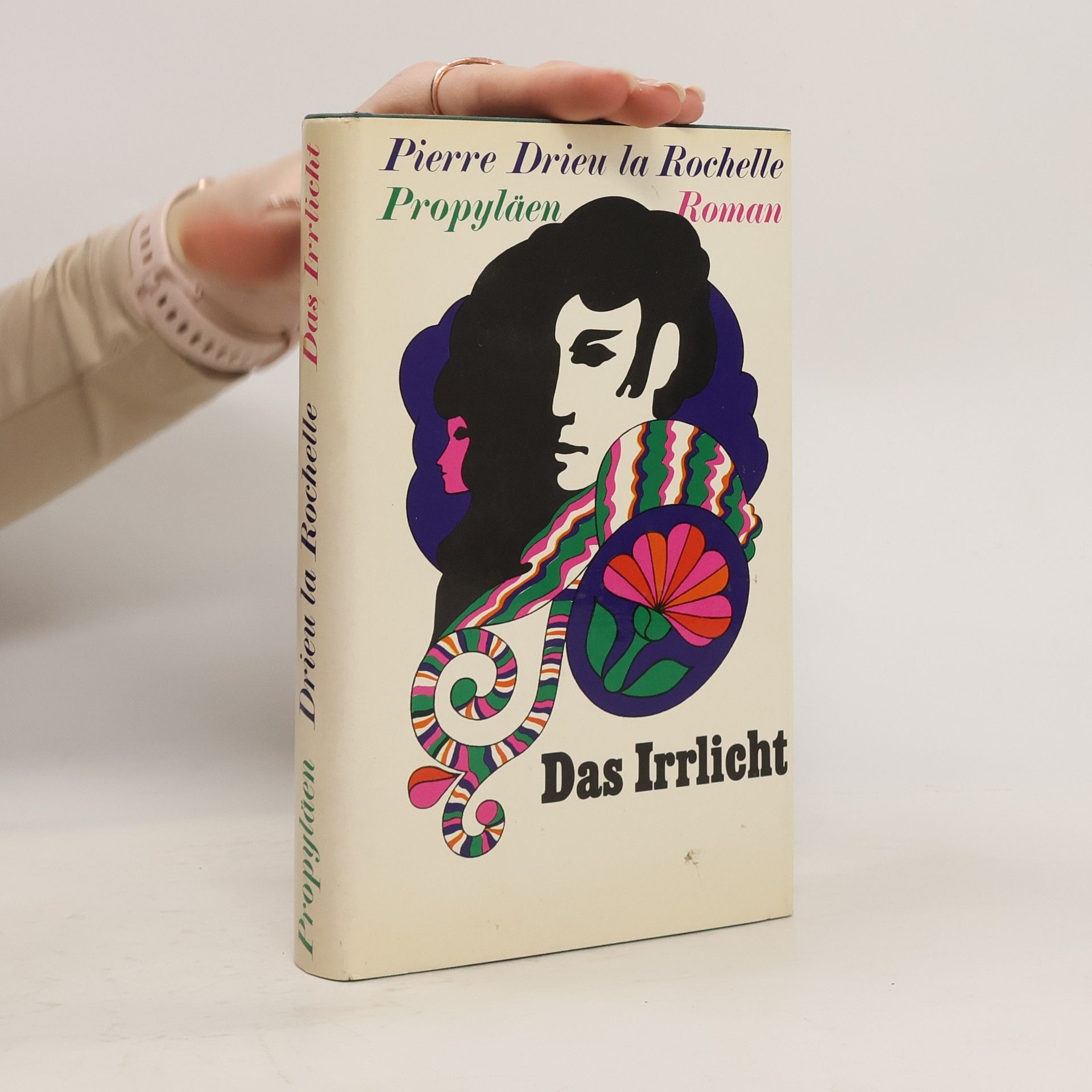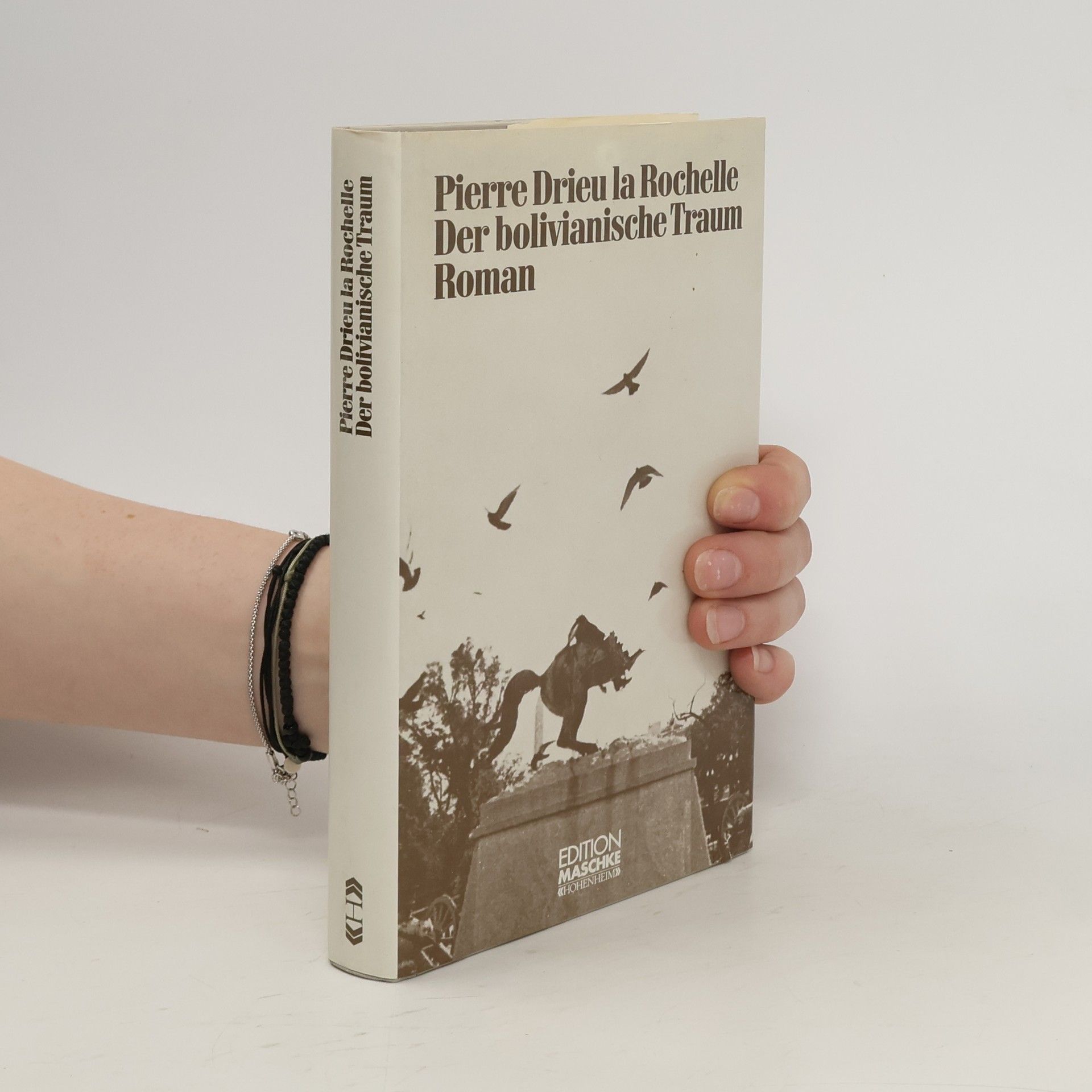Pierre Drieu la Rochelle Knihy
Pierre Drieu La Rochelle byl francouzský spisovatel, jehož dílo je hluboce poznamenáno traumatem první světové války a hledáním smyslu v dekadenci své doby. Jeho psaní zkoumá otázky identity, politiky a duchovnosti s provokativním a často kontroverzním přístupem. Vyznačoval se ostrým pozorováním společenských a politických proudů, které formovaly meziválečnou Evropu, a v jeho esejích i románech se odráží jeho neustálé hledání silné vize pro budoucnost, často v rozporu s dobovými ideologiemi.


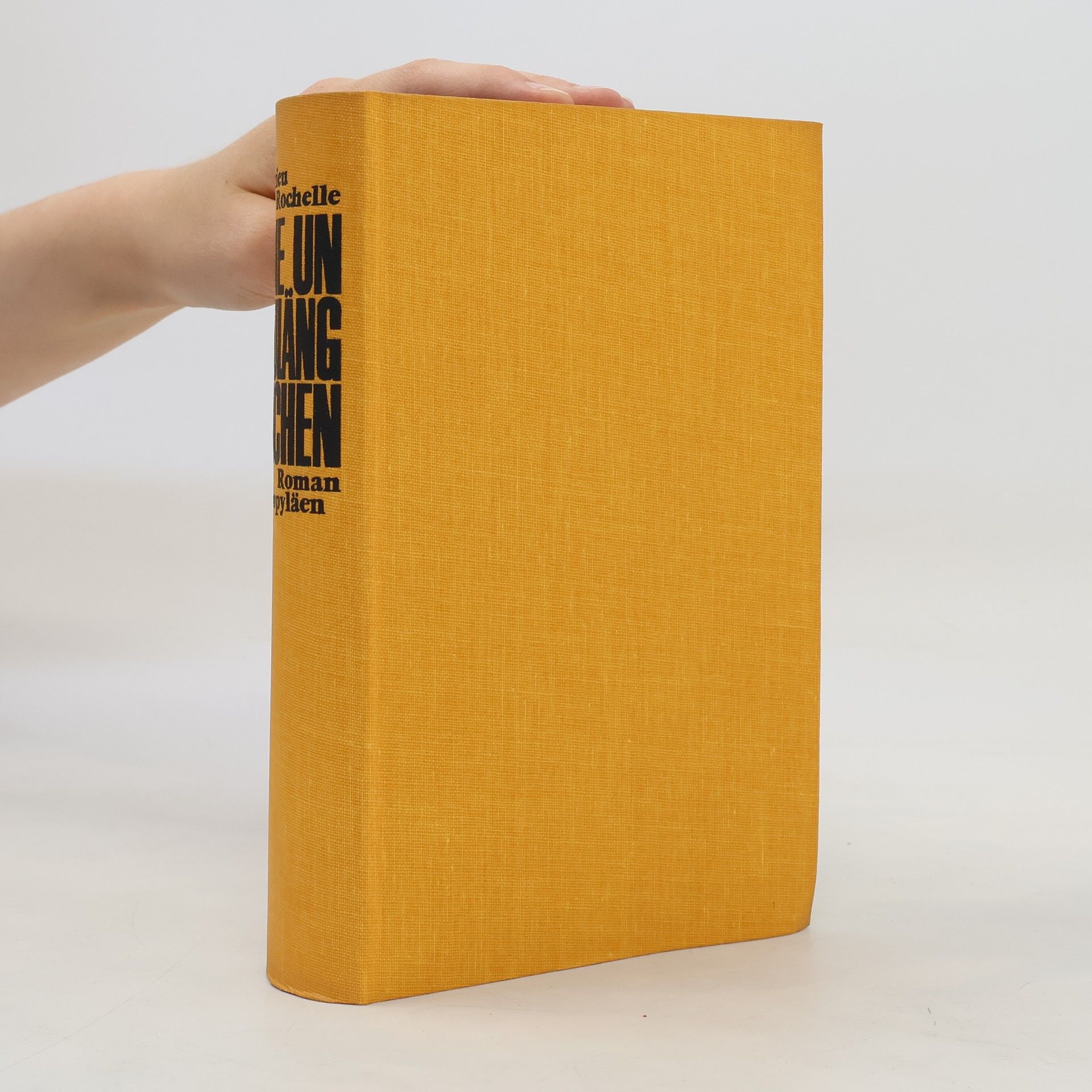


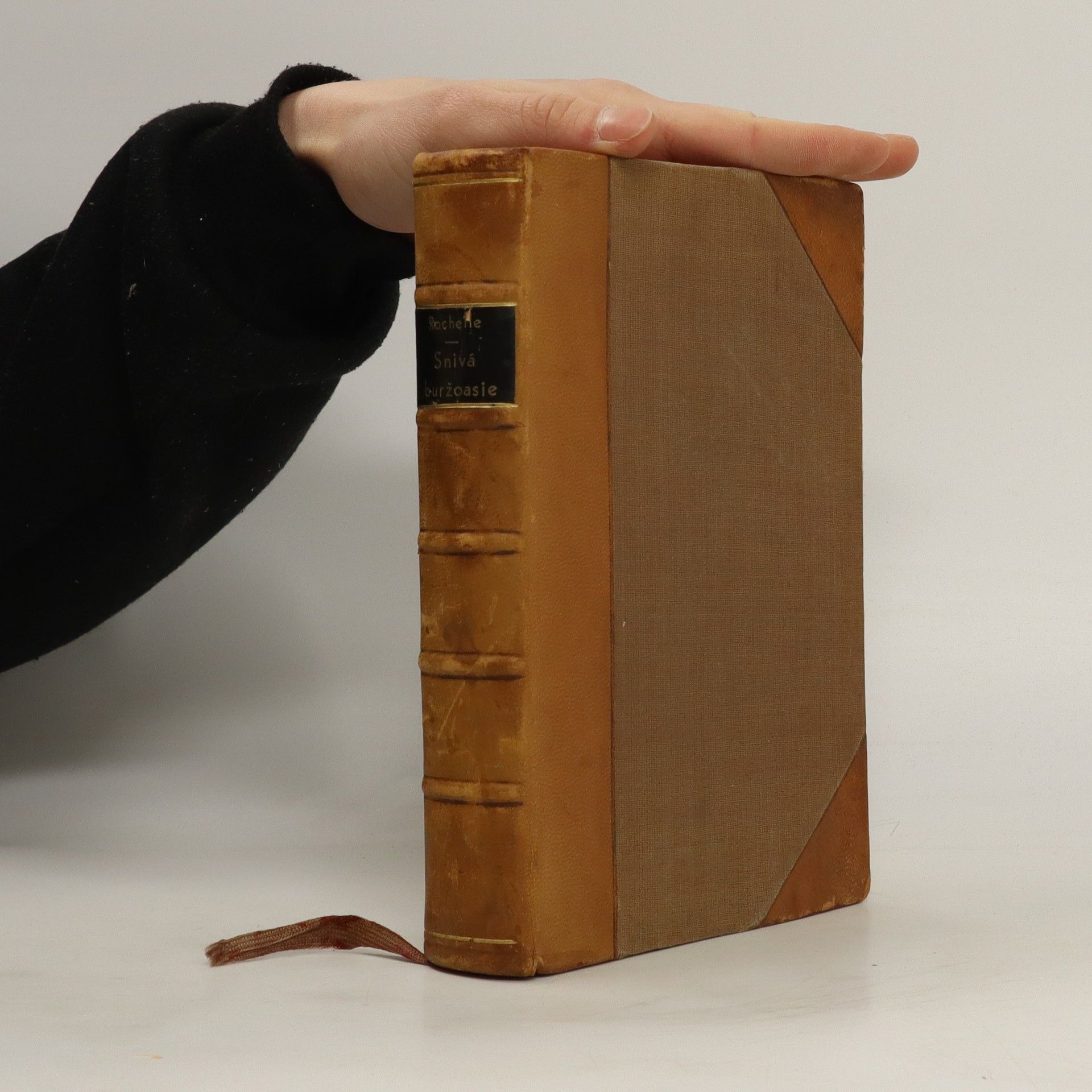
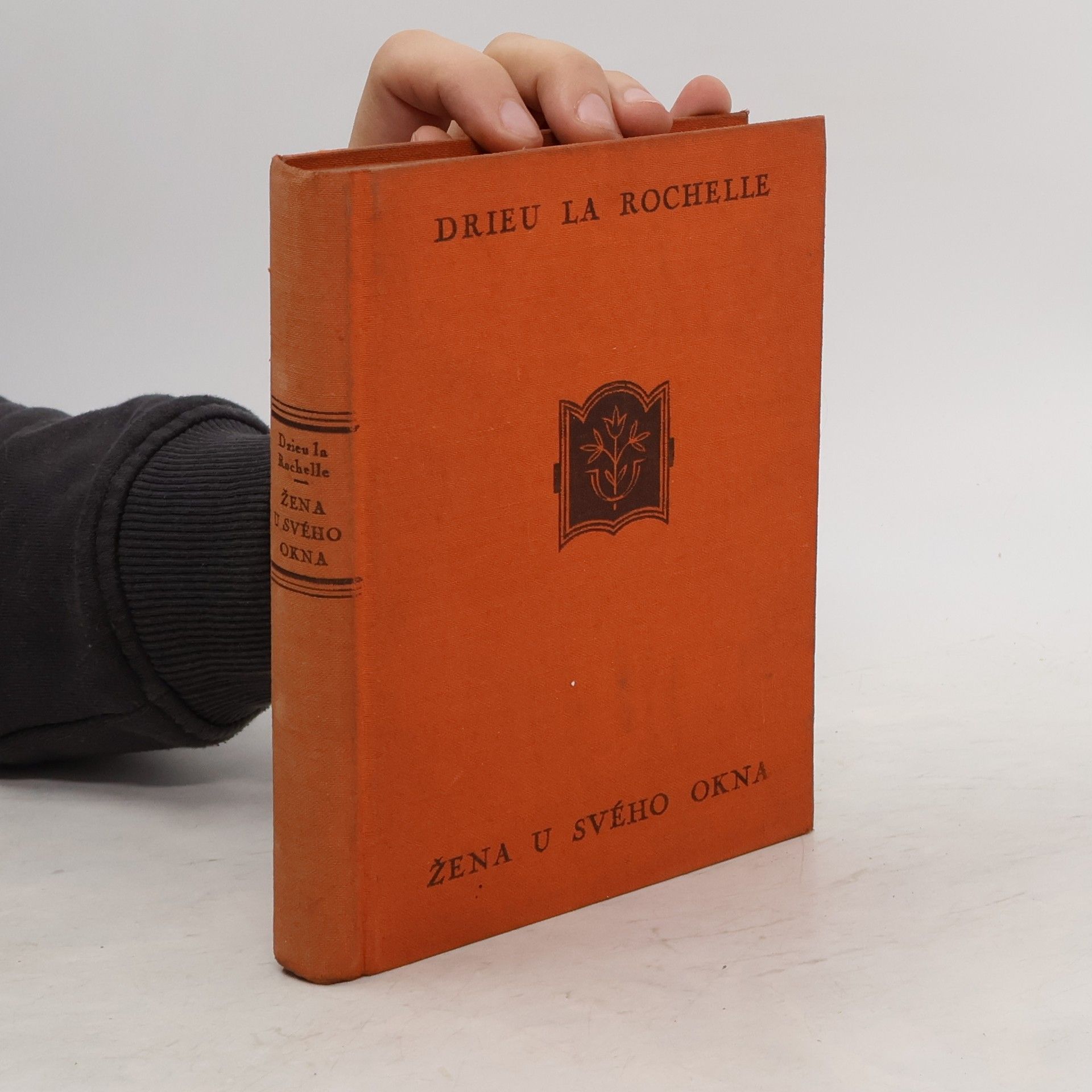
Román z buržoazního úpadkového prostředí vypravuje o třech generacích francouzské rodiny, která pro neschopnost přizpůsobit se novým poměrům zvolna hyne.
Adapted to film by both Louis Malle and Joachim Trier, this heart-rending and tenderly wrought novel narrates the decline of an artist and heroin addict in 1920s Paris. Pierre Drieu la Rochelle might be said to be both the Hemingway and the Fitzgerald of twentieth-century French literature, a battle-scarred veteran of the First World War whose work chronicles the trials and tribulations of a lost generation, a man about town, a heartbreaker with a broken heart, a literary stylist whose work is as tough as it is lyrical and polished. Politically compromised as Drieu came to be by his affiliation with the fascist right and collaboration under Nazi occupation—Drieu committed suicide at the end of the war—his novels remain vivid reflections of a broken spiritual and political world of the interwar years and as works of art, and to this day they are widely read and greatly admired in France. The Fire Within, which has been successfully adapted to the screen by Louis Malle and more recently Joachim Trier, is the lacerating tale of Alain Leroy, a war veteran and beautiful young man of whom the world is expected but who has taken refuge from the world in drugs. After being institutionalized, Alain emerges to try to put his life together again, but in spite of the attentions of friends and lovers, he struggles to find his way.
Heimat Europa
Reiseberichte und andere Texte 1931–1942
Mobilität – das Zeichen »unserer« Zeit. Wie fern sind uns dagegen jene Zeiten, in denen eine erkenntnisbringende Reise noch mit wirklichem Aufwand verbunden war. Als man noch nicht heute hier und morgen dort seine Zelte aufschlug. Der französische Schriftsteller Pierre Drieu la Rochelle (1893–1945) holt uns genau dorthin zurück – in eine Zeit, in der die Welt noch keine »Instagram-Touristen« kannte. Er nimmt uns mit auf eine sehr persönliche und sehr politische Reise durch seine »Heimat Europa« – und zwar in den spannendsten und konfliktreichsten Jahren des 20. Jahrhunderts. Drieu versteht das »Reisen« nicht als Erholung, sondern als Arbeit: Er will wissen, wie die Völker seiner Zeit denken, handeln und leben. Faschistisches Italien, nationalsozialistisches Deutschland, bolschewistische Sowjetunion, multinationale Tschechoslowakei, autoritäres Ungarn – so unterschiedlich die Eindrücke ausfallen, so einheitlich bemüht um das Verständnis dieser europäischen Nationen erweist sich Drieu in vorliegendem Band. Er enthält – erstmals überhaupt auf Deutsch – die gesammelten Reiseberichte des Vernunft- und Gefühleuropäers. Und er enthüllt die »Krise« sozialer, wirtschaftlicher und nationaler Natur als Zeichen »seiner« Zeit.
Die Unzulänglichen ist ein fesselnder, autobiographischer Roman. In diesem Werk des französischen Schriftstellers und politischen Denkers Pierre Drieu la Rochelle (1893–1945) wird die politische Entwicklung des in den Pariser Cafés und Salons beheimateten Dandys faßbar. Von der Rückkehr Drieus Alter Ego aus dem Ersten Weltkrieg bis hin zur Intervention im Spanischen Bürgerkrieg entfaltet sich ein Werk, in dem Drieu die Stimmung und Lebensverhältnisse des Pariser Intellektuellenmilieus zwischen beiden Weltkriegen auf einmalige Art und Weise wiedergibt. Ein Buch für Suchende, ein Buch für Träumende: Pierre Drieu la Rochelle bleibt aktuell.
LA COMEDIE DE CHARLEROI
- 230 stránek
- 9 hodin čtení
" Je me rappelle deux ans plus tard, en face de moi, ce grand diable d'officier allemand debout dans la tourmente, à Verdun, Fritz von X..., qui était debout, et appelait, et m'appelait. Et je ne lui répondais pas, je le canardais de loin. Dans cette guerre, on s'appelait, on ne se répondait pas. J'ai senti cela, au bout d'un siècle de course. On a senti cela. Je ne faisais plus que gesticulailler, criailler. Je n'avançais plus guère. Je trébuchais, je tombais. Ils trébuchaient, ils tombaient. Je sentais cela. Je sentais l'Homme mourir en moi. "
Alain Leroy achève une cure de désintoxication dans la région parisienne dans une maison santé où l'on soigne surtout des neurasthéniques. Les grands thèmes de ce court roman sont l'amour des femmes, la séduction, le désir, trouver le goût de vivre. Il est séparé de sa femme, Dorothy, qui est à New York. Il déambule dans Paris, sans but. Il fréquente des soirées mondaines, revoit des amis du temps où il se droguait. Il se sent seul, l'ennui, le désespoir ... Plus de goût à la vie, le dégoût, peur de vieillir l'envie d'en finir, sont présents tout au long du roman.
